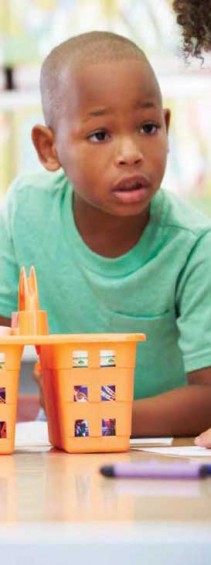Enrolling your child into an early childhood education program is a decision that many parents take seriously – and for good reason. Many studies, including the HighScope Perry Preschool Study, found that individuals who were enrolled in a quality preschool program could ultimately earn up to $2,000 more per month than those who were not. Additionally, those who were in preschool programs were more likely to graduate from high school, own homes and to have longer marriages.
The South Carolina Department of Education reported in 2013 that the number of high school dropouts is declining. In fiscal year 2011-2012, the most recent data available, 5,232 South Carolina high school students dropped out, 670 fewer than in the prior year and 2,800 fewer than in 2007-2008.

Does this information mean that parents, as well as state and local governments, now recognize the importance of early childhood education? That’s certainly a possibility, because, in recent years, South Carolina has seen a rise in early childhood development centers. Among them advance for infants and at least a couple of months for toddlers.
“It depends on the type of program you are looking for, but six months allows parents enough time to tour and revisit several facilities before making a commitment and securing a spot,” she said.
Private Christian centers offer early care and educational services for children as well.
“We believe early childhood learning begins with discovery in a compassionate, Christian environment,” said Katie Carter, director of Children’s Discovery Center in Mount Pleasant. “Our program involves children in a joyful, absorbing and growing awareness of their world.”
The publicly funded – through the U.S. Department of Health and Human Services – Early Head Start program is for kids up to the age of 3, at which time they switch to the Head Start program. Both programs are available to low-income families through the Charleston and Berkeley County school districts.
All of these programs, both private and public, target activities to help children develop. Each day, time is allotted for gross motor skills such as running, climbing and throwing to help students build muscles and achieve coordination. In turn, this leads to gripping a pencil to form letters and numbers. Fun activities teach basic math skills and reading readiness.
Further, preschool programs help children get accustomed to a structured environment with time constraints, authority figures and peer interactions that involve taking turns and sharing. All of this helps produce an emotionally sound child who can handle the pressures of kindergarten.
Preschool programs help children develop, but all education starts at home. From the moment a child is born, he or she learns from each interaction, whether with a parent, grandparent, sibling or even the family pet.
“Science is learning more every day about the importance of brain development during the crucial preschool years,” explained Carter, a longtime educator and mother. “The neurons in the brain which are there at birth are going through a pruning process, and many of those neurons will become hard-wired as part of the child’s brain. The early stimulation that is provided in high-quality preschools will help in that pruning process, thus increasing the brain’s capacity to learn. When proper stimulation does not occur, neurons can be lost.”
Smith offered advice when choosing a provider for early childhood education.
“One of the most important aspects is the connection a parent makes with a teacher or administrator. Look at the longevity of the staff and the company’s commitment to professional growth. All of this leads to happy children,” she said.
We encourage parents to make a list of their own important questions and to seek answers from contributors to Mount Pleasant Magazine: Time to Grow Montessori, Sundrops Montessori and Children’s Discovery Center.
By Stacy E. Domingo

Leave a Reply